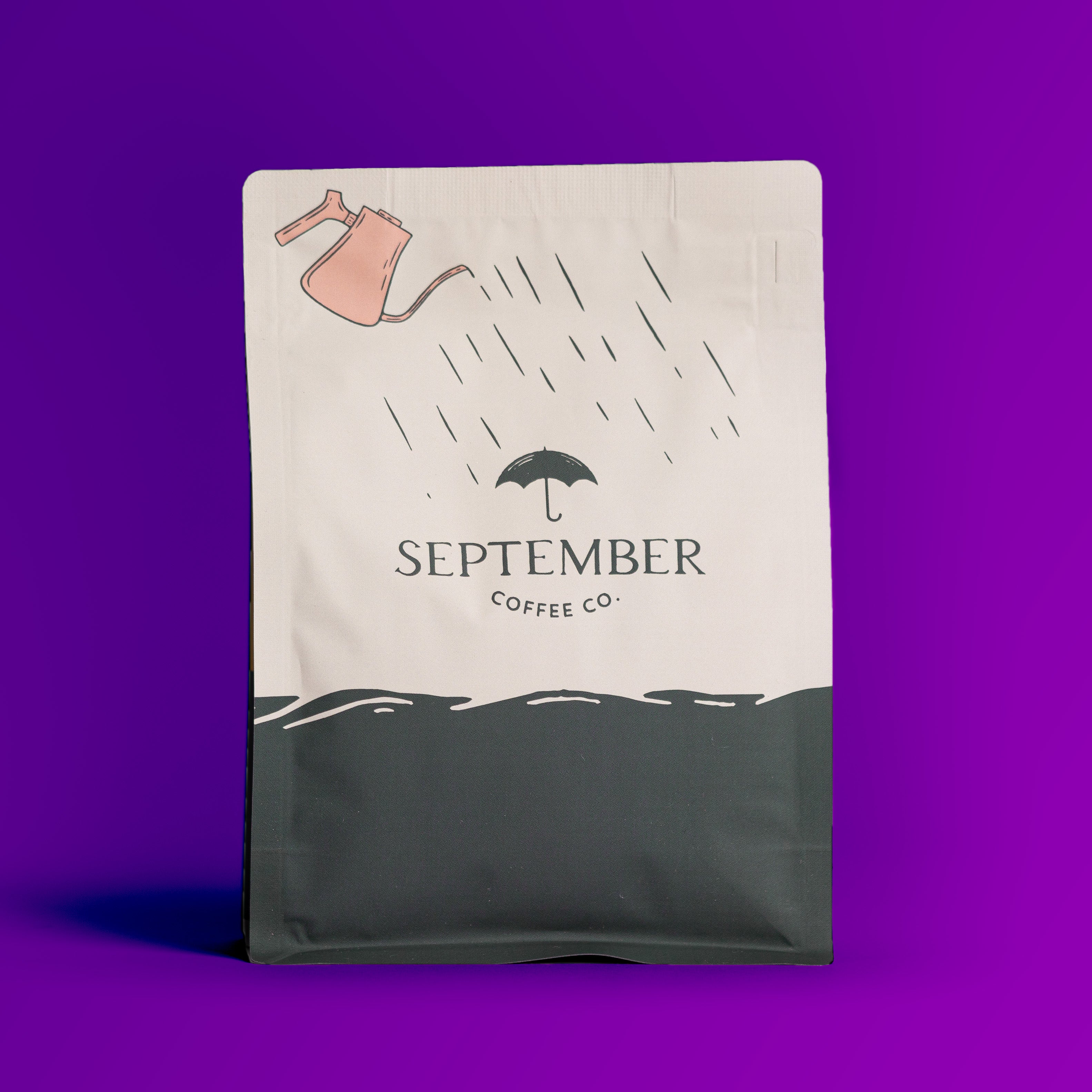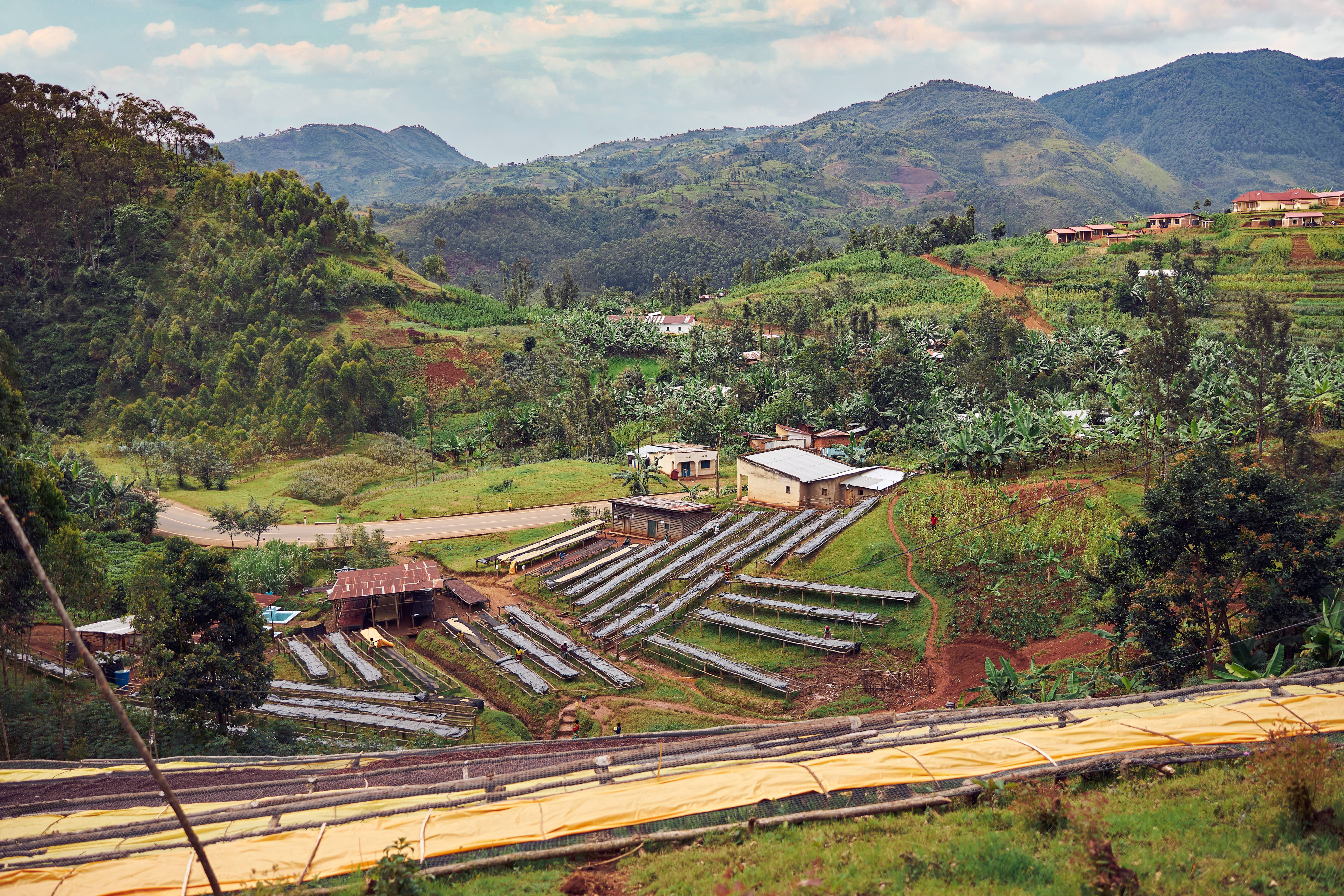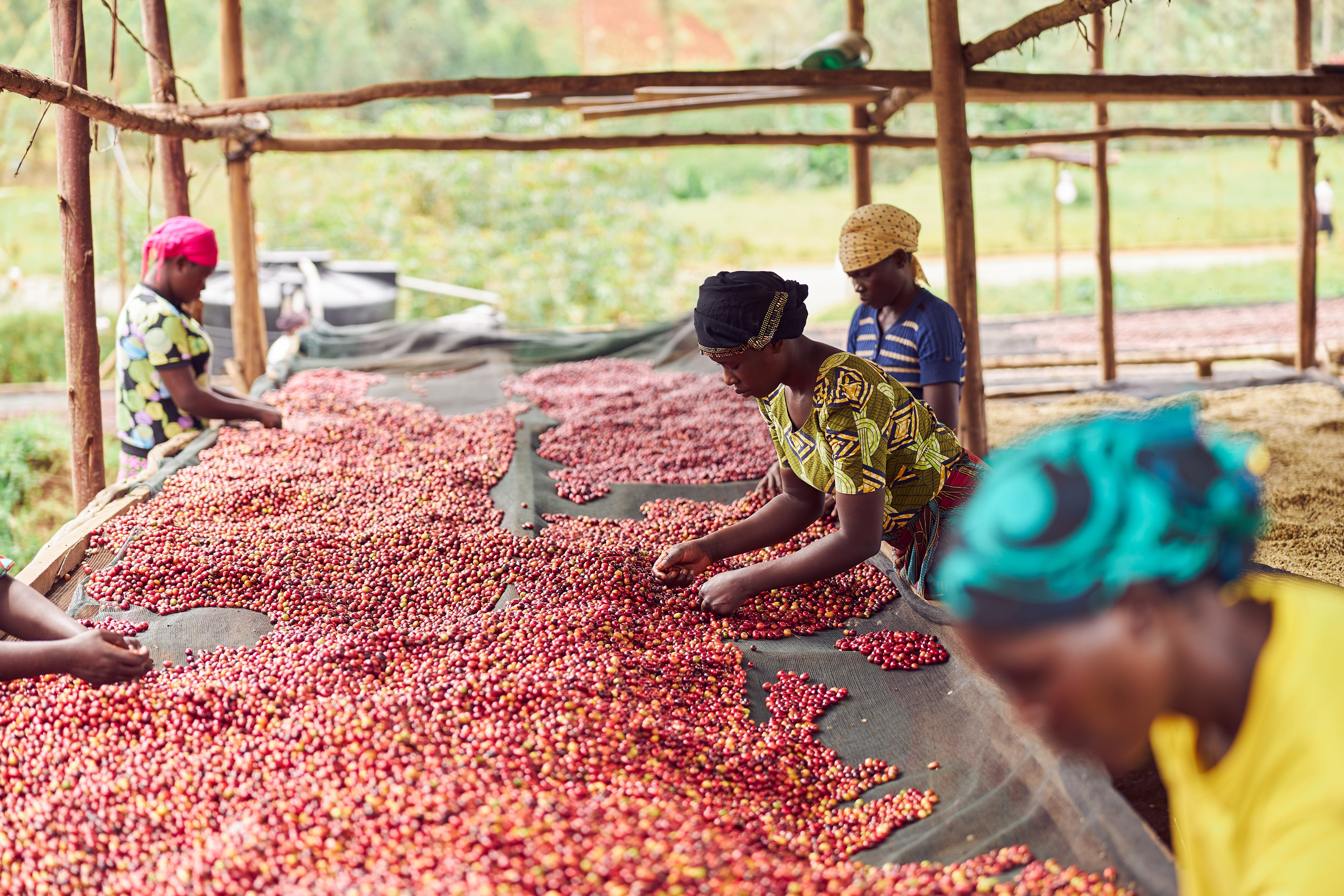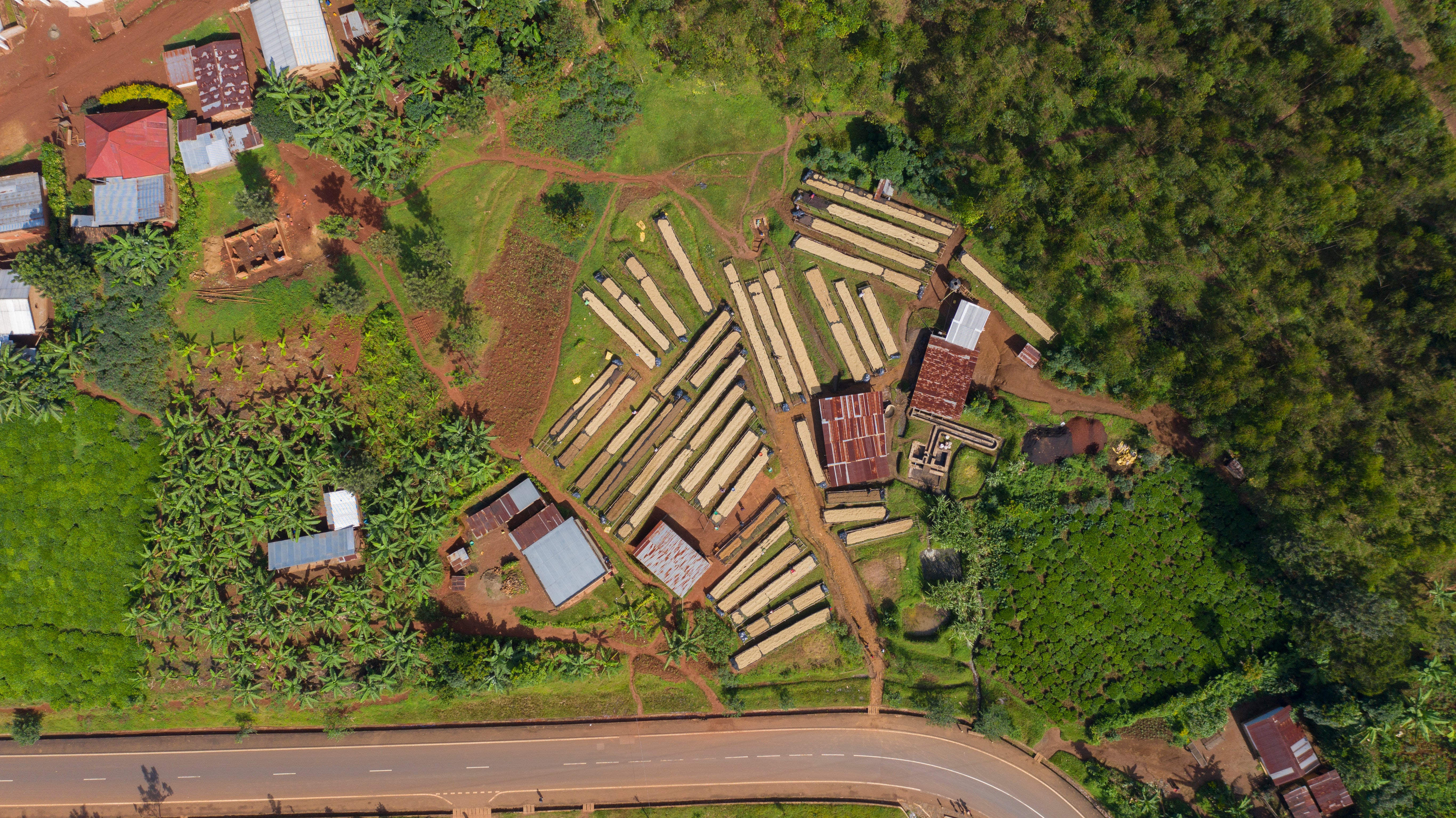



Blackberry Fudge - Rwanda
Pickup currently unavailable at September Coffee Roastery
Blackberry Fudge - Rwanda
September Coffee Roastery
Pickup currently unavailable
119 Iber Road
Unit 9
Ottawa ON K2S 1E7
Canada
Process: Natural
During the first 5 days on the tables, cherries are only exposed to sunlight for a maximum of 3 hours per day, and it is manually turned every 30 minutes to
avoid cracking from overly fast drying. It’s finally moved onto drying beds in full sun and turned 4 times per day. Temperature is closely monitored
throughout the day - if it exceeds certain thresholds, workers will focus on turning coffee more frequently or cover the beds with mesh netting. When the
moisture content reaches 11.0%, the drying phase is considered complete. The parchment is bagged and stored in a dry warehouse until time for milling.
Total drying times for washed process coffee is around 30 - 40 days.
Our Price Transparency
Country: Rwanda
Impressions: Blackberry, Dark Chocolate, Purple Plum
Producers: Cyeshero hill
Smallholders:
Zabron R.
Emmanuel H.
Annonciate M.
Innocent B.
Japhet N.
Samuel S.
Felecien N.
Variety: Red Bourbon
Altitude: 1535-1900 MASL
Washing Station: Akagera
Importer: Semilla
*Blackberry Fudge roasted June 14th*

Emmanuel attributes the cool, humid air of this particular area to the unique flavours produced in coffees here. Akagera is amongst Baho’s smallest stations, with only 460 farmers delivering cherries.This coffee is sweet, bodied and works well for both espresso and filter.
Akagera is a newer station in the Baho Coffee lineup that Emmanuel just
began managing at the beginning of the 2020 season. It’s located in the
famed Nyamasheke District, set in between the beautiful Lake Kivu and
Nyungwe National Forest. Emmanuel attributes the cool, humid air of this
particular area to the unique flavours produced in coffees here. Akagera is amongst Baho’s smallest stations, with only 460 farmers delivering cherries for a total of ~380 bags of exportable green coffee each year. This allows for the managers to focus exclusively on quality, whereas some stations have to manage commercial grades as well as specialty.
began managing at the beginning of the 2020 season. It’s located in the
famed Nyamasheke District, set in between the beautiful Lake Kivu and
Nyungwe National Forest. Emmanuel attributes the cool, humid air of this
particular area to the unique flavours produced in coffees here. Akagera is amongst Baho’s smallest stations, with only 460 farmers delivering cherries for a total of ~380 bags of exportable green coffee each year. This allows for the managers to focus exclusively on quality, whereas some stations have to manage commercial grades as well as specialty.
The initial steps for each process are the same: First, a day of intensive sorting at the cherry stage, under complete shade, to ensure only the ripest are chosen and any visible defects are removed. Step two is multiple rounds of floating - filling a large container with cherries and water, discarding the less dense cherries that float to the top of the tank. The densest coffees (sinkers) are reserved to be processed as the higher grade lots, and the less dense coffees (floaters) are mixed in with the rejected cherries from the initial sorting to be processed as lower grade lots. It’s expected that cherries are delivered to stations, on average, between 2 to 3 hours from picking.
This densest coffee is kept in fermentation tanks for 12 hours and moved out to drying tables with its pulps still intact. Skin drying is done on wood drying tables under shade and we cover with shed net when it has a high sun shine to avoid quality damage.
Coffee is then moved onto shaded drying beds for 48 - 72 hours. This step has two distinct benefits. First, it sets the trajectory for the entire drying phase by
initially beginning very gently and slowly under complete shade. Secondly, it allows ample time for intensive sorting - this is important because certain
defects (seeds bitten by Antestia in particular, thought to cause the potato defect).
This densest coffee is kept in fermentation tanks for 12 hours and moved out to drying tables with its pulps still intact. Skin drying is done on wood drying tables under shade and we cover with shed net when it has a high sun shine to avoid quality damage.
Coffee is then moved onto shaded drying beds for 48 - 72 hours. This step has two distinct benefits. First, it sets the trajectory for the entire drying phase by
initially beginning very gently and slowly under complete shade. Secondly, it allows ample time for intensive sorting - this is important because certain
defects (seeds bitten by Antestia in particular, thought to cause the potato defect).
During the first 5 days on the tables, cherries are only exposed to sunlight for a maximum of 3 hours per day, and it is manually turned every 30 minutes to
avoid cracking from overly fast drying. It’s finally moved onto drying beds in full sun and turned 4 times per day. Temperature is closely monitored
throughout the day - if it exceeds certain thresholds, workers will focus on turning coffee more frequently or cover the beds with mesh netting. When the
moisture content reaches 11.0%, the drying phase is considered complete. The parchment is bagged and stored in a dry warehouse until time for milling.
Total drying times for washed process coffee is around 30 - 40 days.
Our Price Transparency
Paid to Producer: $4.08USD/LB
Price we paid Semilla: $7.88CAD/LB
Roasted Price: $22.08/KG
